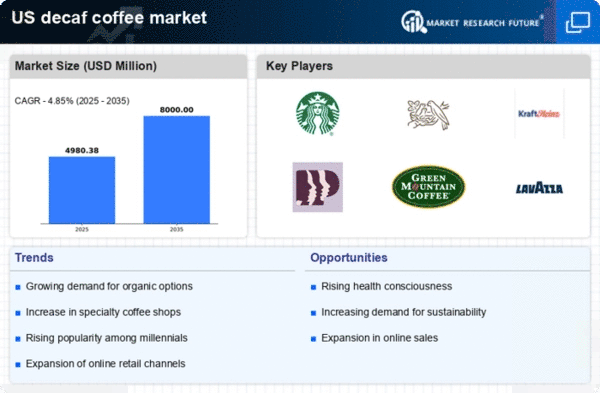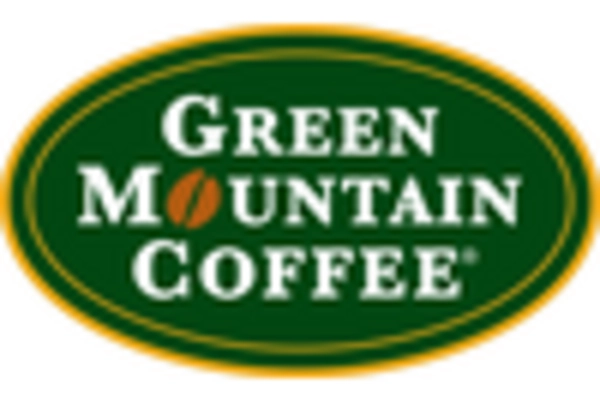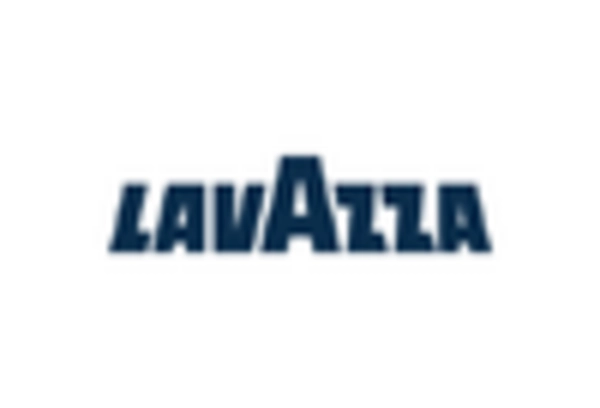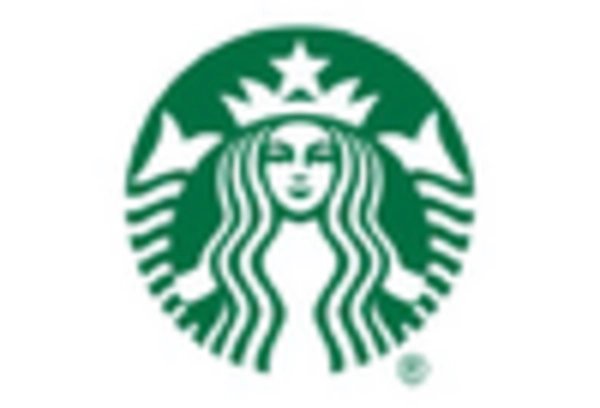The decaf coffee market exhibits a dynamic competitive landscape characterized by a blend of established players and emerging brands. Key growth drivers include an increasing consumer preference for low-caffeine options, heightened awareness of health benefits, and a growing trend towards premiumization. Major companies such as Starbucks (US), Nestle (CH), and Dunkin' (US) are strategically positioned to leverage these trends. Starbucks (US) focuses on innovation through product diversification, while Nestle (CH) emphasizes sustainability in sourcing and production. Dunkin' (US) aims to enhance customer experience through digital transformation and loyalty programs. Collectively, these strategies shape a competitive environment that is increasingly focused on quality, sustainability, and consumer engagement.
In terms of business tactics, companies are localizing manufacturing and optimizing supply chains to enhance efficiency and responsiveness to market demands. The competitive structure of the decaf coffee market appears moderately fragmented, with a mix of large multinational corporations and smaller niche players. This fragmentation allows for diverse offerings, yet the influence of key players remains substantial, as they set trends and standards that smaller companies often follow.
In October 2025, Starbucks (US) announced the launch of a new line of organic decaf coffee blends, aimed at catering to health-conscious consumers. This strategic move underscores the company's commitment to innovation and aligns with the growing demand for organic products. By introducing these blends, Starbucks (US) not only enhances its product portfolio but also strengthens its position in the premium segment of the market, potentially attracting a broader customer base.
In September 2025, Nestle (CH) unveiled its latest sustainability initiative, which includes a commitment to sourcing 100% of its coffee from sustainable farms by 2027. This initiative is significant as it reflects the company's proactive approach to addressing environmental concerns and meeting consumer expectations for ethical sourcing. By prioritizing sustainability, Nestle (CH) aims to differentiate itself in a crowded market, appealing to environmentally conscious consumers and enhancing brand loyalty.
In August 2025, Dunkin' (US) expanded its digital ordering capabilities, introducing a new app feature that allows customers to customize their decaf coffee orders more efficiently. This enhancement is crucial as it aligns with the ongoing trend towards digitalization in the food and beverage sector. By improving the customer experience through technology, Dunkin' (US) positions itself as a forward-thinking brand that values consumer preferences and convenience.
As of November 2025, current trends in the decaf coffee market are increasingly defined by digitalization, sustainability, and the integration of artificial intelligence in operations. Strategic alliances among companies are shaping the landscape, fostering innovation and collaboration. Looking ahead, competitive differentiation is likely to evolve from traditional price-based competition to a focus on innovation, technology, and supply chain reliability. Companies that can effectively leverage these trends will likely secure a competitive edge in the market.

















Leave a Comment